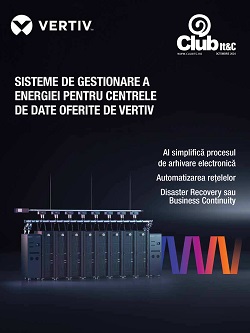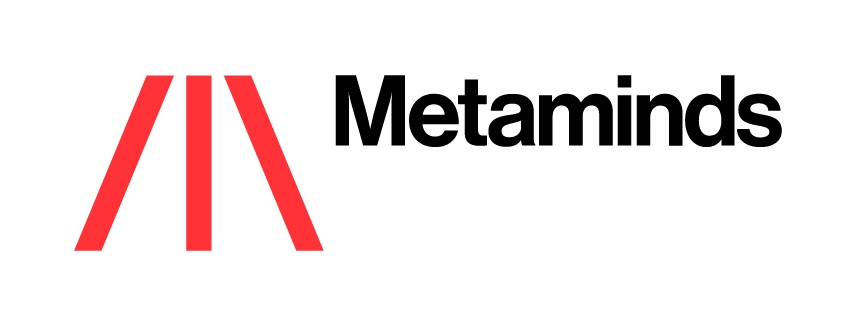Data from a survey conducted by Revolut Junior, the account for kids and teens with 1 million users all over the world, reveals European parents’ habits and attitudes towards finances for their children. The data comes from a survey conducted by Revolut Junior, with almost 5,000 participating European parents.
 The data shows, among other things, how much weekly pocket money European parents allow their children, what money skills they believe are the most important for children to learn and at what age they think that a child should have their own payment card. The data also reveals that 63% of Europe’s parents have a separate savings account for their children,and that 62% did not reduce their children’s pocket money during the Covid pandemic.
The data shows, among other things, how much weekly pocket money European parents allow their children, what money skills they believe are the most important for children to learn and at what age they think that a child should have their own payment card. The data also reveals that 63% of Europe’s parents have a separate savings account for their children,and that 62% did not reduce their children’s pocket money during the Covid pandemic.
Tara Massoudi, Head of Product at Revolut Junior said: “How families manage their finances and how parents teach children about money is a very individual thing, and something that not a lot of people talk about openly. We are delighted to use anonymised data to reveal the financial habits of European families. Financial education starts the moment a child receives their first bit of pocket money. The more openly we discuss how we make financial decisions, the more healthy habits our children can pick up. We are happy to see that most European parents want their children to start learning and understanding money from a very young age, already from the age of 6”.
European parents to Revolut Junior users had the opportunity to take the survey in October 2021. Parents from the UK, Ireland, Germany, Spain, Italy, France, Poland, Romania, Sweden, Norway, Denmark and Finland participated in the survey. 4,789 parents answered the survey.
Cash is still king among European children
Data from Revolut Junior shows that European children mainly carry cash, in most countries. Children in Spain and Germany use cash to the greatest extent, compared to children in other European countries.
Tara Massoudi, Head of Product at Revolut Junior said: “It is a bit worrying that most parents are still opting to give their children cash, which offers no control or insights to the parents about where their children are spending their money. The world is moving towards a cashless society, and the pandemic has accelerated digital payment trends even more. Revolut Junior and other digital tools help children to evolve with this shift”.
However the usage of cash is still high in all over Europe. 62% of the children in Spain and 61% of children in Germany carry and use cash, while 54% of Irish children, 51% of Italian children, 54% of children in Romania and 47% of children in France use cash.
The region that stands out as the least cash-friendly one for children is the Nordic countries, where 64% use a debit card and as few as 42% carry cash.
European tweenies have their own payment card
Parents in most European countries believe that their children should get their first payment card when they are “tweenies”, 11-14 years old. As many as 48% believe that this age is when children are ready to start paying by card.
Not too surprisingly, in context of the high usage of debit cards among children in the Nordics, the first payment card comes early for Nordic children. 45% of Nordic parents think that their kids should get their own payment card when they are 7-10 years old. Parents of children in Poland follow the Nordic example, with 31% believing that their children should get their own payment card at the age of 7-10.
However, parents in some countries believe that their children shouldn’t have their own payment card until they reach the age of 15-17. 34% of French parents and 36% of Spanish parents think that their children should be over fifteen before they pay by card.
Money skills according to European parents: What to learn and when to learn it
49% of European parents believe that their children should start early to understand money, already from the age of 6-10. However, the opinion of French parents differs from that of their European neighbors’. 51% of French parents believe that their kids can wait until they are 11-15 to start learning how to manage money, and 10% think that children should be 16-18 years old. In all Europe, only 4% of the parents believe that their children should start learning about money when they are 16-18 years old.
Parents in Europe agree that saving, followed by budgeting and in third place safe online shopping are the most important money skills for their children to learn. Spanish parents strongly agree that children should learn to save money. 83% believe that saving is the most important money skill for their children to learn. 80% of Polish parents on their side believe that budgeting is the most important skill.
The most important money skills for kids, according to European parents
1. Saving: 78%
2. Budgeting: 70%
3. Safe online shopping: 45%
4. Investment: 32%
5. Debt management: 21%
British and Polish parents differ from the crowd when it comes to secure online shopping. 51% of UK parents and 57% of Polish parents believe that it is the most important skill. Another Interesting distinction is that 27% of Romanian parents and 26% of UK parents believe that debt management is the most important skill for their children to learn.
Nordic parents give their children the most pocket money in Europe
Data from Revolut Junior shows how much a majority of European parents grant their children in weekly pocket money:
● Children between 7-10 years get less than £10 per week
● Children between 11-14 years get £10-20 per week
● Children between 15-17 years get £10-50 per week
However, the weekly allowance that children in Europe receive from their parents differs significantly between countries. The group who give their children most money are Nordic parents, where 9% give their children aged 15-17 more than £100 in weekly pocket money, and 15% give £50-100.
32% of the German parents give their young children aged 7-10, £10-20 in weekly pocket money, which is the highest percentage within that group. However, German children seem to maintain the same amount of pocket money throughout their teenage years. 39% give their 11-14 year old children £10-20, and 34% give their 15-17 year olds the same amount.
Financial skills for life
Revolut Junior is designed for kids and teens between the ages of 6 and 17 with a focus on teaching them financial skills that will last a life-time. Junior was specifically created by Revolut to enable children to learn money management skills through tailored money tools, a personal account, and a card. It gives kids the freedom to earn, manage and spend money in an environment that’s completely controlled by the parent. Revolut Junior recently announced that it brings Apple Pay to its teenage users in the UK.
In addition to creating an account, ordering a card that you can spend with online, in shops or withdraw money at ATMs, Revolut Junior offers some key features to help kids earn, manage their money and spend.
● Allowances allow parents to set up a standing order to add a fixed amount of pocket money for their kid on an ongoing basis.
● Challenges allow parents to set chores and to-dos for their kids, each with a financial value against it. Once done, these can be marked as done and the parent can pay for the completed task.
● Goals allow parents to create pots of money to help them save towards the things they want, track the progress and celebrate the achievements.
The Junior account is an extension to the parent’s Revolut account. Revolut Junior is available to children and teens across the UK, EEA, US, Singapore and Australia.
Summary of the results
European parents to Revolut Junior users had the opportunity to take the survey in October 2021. Parents from the UK, Ireland, Germany, Lithuania, Spain, Italy, France, Poland, Romania, Sweden, Norway, Denmark and Finland participated in the survey. 4,789 parents answered the survey.
At what age do you think a child should have their own payment card?
● 25% answered at 7-10 years old
● 48% answered at 11-14 years old
● 23% answered at 15-17 years old
At what age do you think that children should start learning how to manage money?
● 16% answered at 5 or younger
● 49% answered at 6-10 years old
● 30% answered at 11-15 years old
● 4% answered at 16-18 years old
Did you reduce your child(ren)’s pocket money during the Covid pandemic?
● 29% answered yes
● 62% answered no
● 9% answered that they don’t give their children money
Do you have a separate savings account for your child(ren)?
● 63% answered yes
● 34% answered no
How does your child(ren) usually carry and use money?
● A credit card: 5%
● A debit card: 25%
● A prepaid card: 12%
● Cash: 52%
● Digital wallet (like Revolut Junior) in a smartphone: 48%
● Other: 4%
How much weekly pocket money would you give a child aged 7-10?
● Less than 10 GBP: 57%
● 10 to 20 GBP: 27%
● 20 to 50 GBP: 6%
● 50 to 100 GBP: 2%
● More than 100 GBP: 1%
● I don’t know: 7%
How much weekly pocket money would you give a child aged 11-14?
● Less than 10 GBP: 32%
● 10 to 20 GBP: 45%
● 20 to 50 GBP: 14%
● 50 to 100 GBP: 2%
● More than 100 GBP: 1%
● I don’t know: 5%
How much weekly pocket money would you give a child aged 15-17?
● Less than 10 GBP: 11%
● 10 to 20 GBP: 37%
● 20 to 50 GBP: 34%
● 50 to 100 GBP: 9%
● More than 100 GBP: 3%
● I don’t know: 6%
Under what circumstances would you consider giving your child(ren) extra money?
● I would not give my child(ren) extra money: 2%
● On a special occasion like their birthday: 58%
● When they ask for it: 41%
● When they complete a chore or are well behaved: 46%
● When they do well at school: 41%
● Other: 11%
What do you think your child(ren) should save money for?
● Children shouldn’t have to think about saving; 5%
● For important life goals, like university: 45%
● To buy themselves an expensive gift: 29%
● To buy whatever they want: 60%
● To use only during an emergency: 26%
● Other: 10%
Which money skills do you think is the most important for your child(ren) to learn?
● Budgeting: 70%
● Debt management: 21%
● Investment: 32%
● Safe online shopping: 44%
● Saving: 78%
● Other: 5%





























